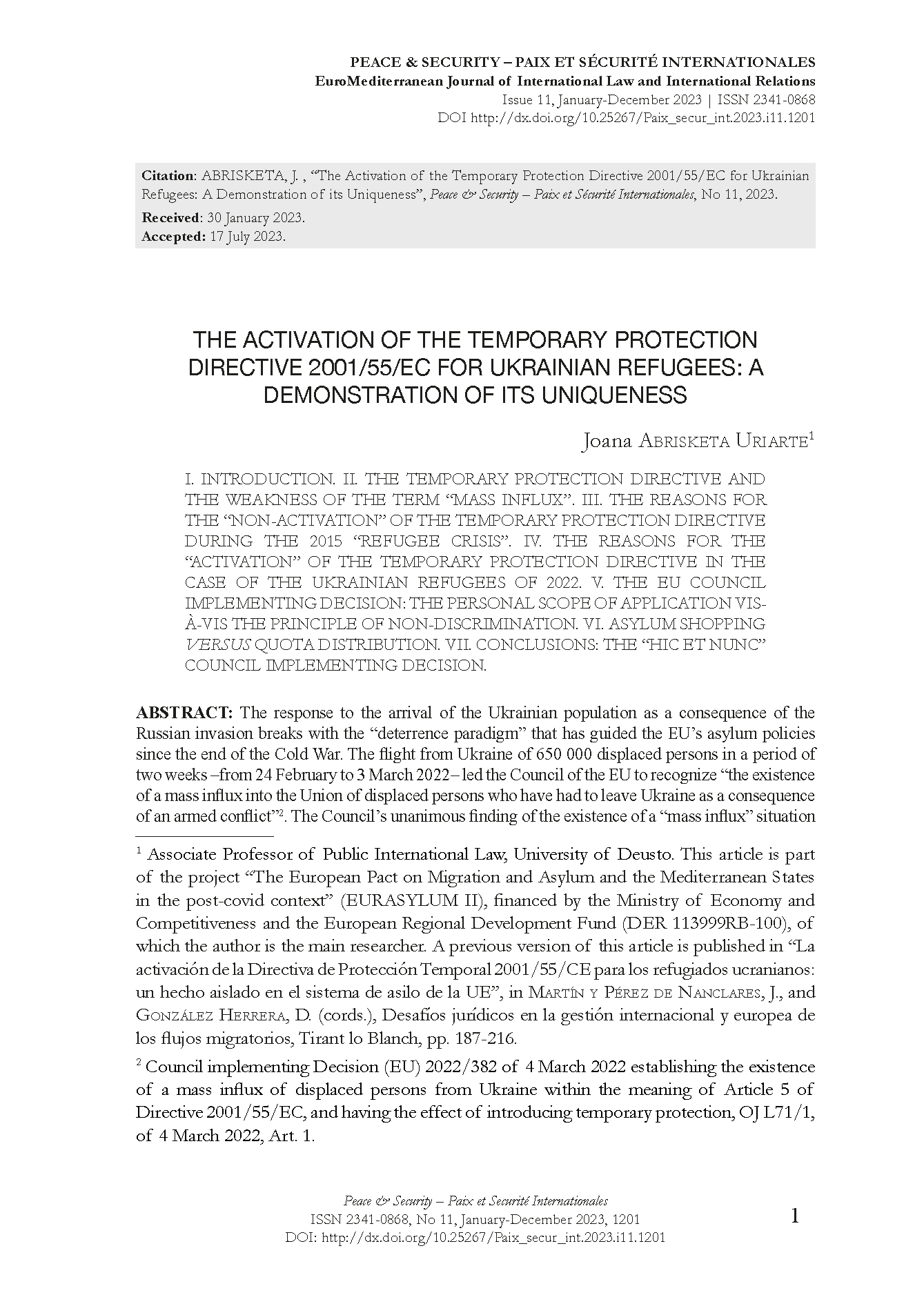The Activation of the Temporary Protection Directive 2001/55/CE for Ukrainian Refugees: A Demonstration of its Uniqueness
Abstract
The invasion of Ukraine launched by Russia on 24 February 2022 and the flight from Ukraine of 650 000 displaced persons in a period of two weeks –from 24 February to 3 March 2022– led the Council of the EU to recognize “the existence of a mass influx into the Union of displaced persons who have had to leave Ukraine as a consequence of an armed conflict”[1]. The Council’s unanimous finding of the existence of a “mass influx” situation had never been made before. Neither in 2011 following the Arab Spring, nor in 2015 during the Syrian refugee crises, nor in 2021 during the arrival of the Afghan population following the Taliban takeover of power, had the Council recognized in such conclusive terms that there was a situation of a “mass influx” of people into European territory. It is therefore a response that is unprecedented in the Union.This article seeks to analyse the nature of some of the challenges posed by the unusual application of the Temporary Protection Directive within the Common European Asylum System (CEAS).
Downloads
How to Cite
License
Copyright (c) 2023 PEACE & SECURITY-PAIX ET SÉCURITÉ INTERNATIONALES (EuroMediterranean Journal of International Law and International Relations)

This work is licensed under a Creative Commons Attribution-NonCommercial 4.0 International License.
Copyright
Es condición para la publicación que el autor o autores ceda(n) a la Revista, en exclusiva, los derechos de reproducción. Paix et Sécurité Internationales es una revista que proporciona un acceso abierto inmediato a su contenido totalmente gratuito para lectores como para los investigadores que pretendan publicar en ella, ya que no se realizan cobros por concepto de envío, procesamiento ni publicación. Los usuarios podrán leer, descargar, copiar, distribuir, imprimir, buscar o enlazar el texto completo de los artículos publicados, o utilizarlos para cualquier otro propósito, dentro de la legalidad vigente. Y podrán hacerlo sin coste alguno, y sin necesitad de solicitar permiso al editor a al autor. Todo ello de acuerdo con la definición de acceso abierto de la Iniciativa Acceso Abierto de Budapest.






